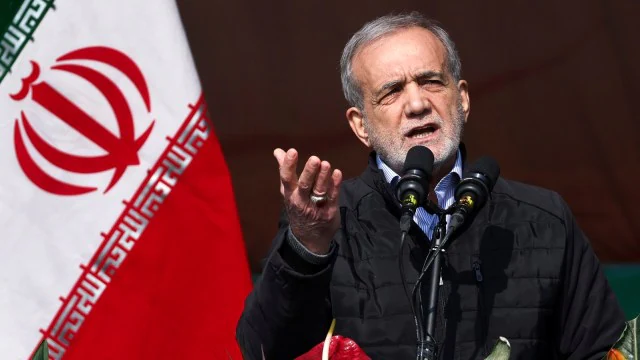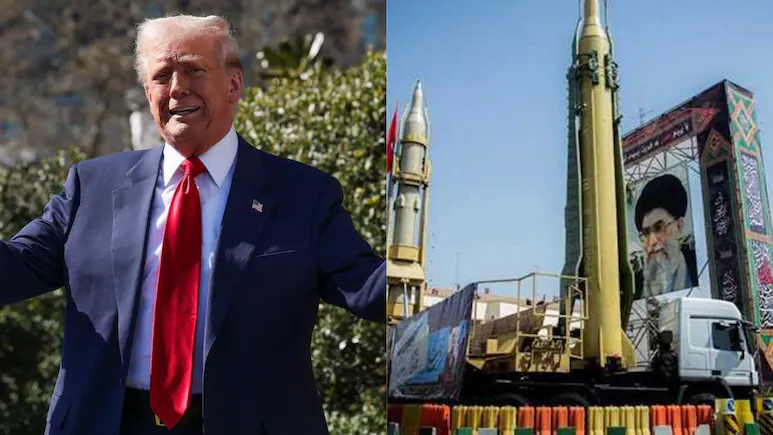Iran-US Nuclear Crisis Escalates: Tehran Mobilizes Missiles After Trump’s Bombing Threats 2025
Iran-US Nuclear Crisis Escalates: Tehran Mobilizes Missiles After Trump’s Bombing Threats

March 31, 2025 | World News
Tensions between Iran and the United States have reached a boiling point as Tehran reportedly deployed missiles targeting U.S. positions globally, responding to former President Donald Trump’s threats of military action over stalled nuclear negotiations.
Iran’s Missile Readiness Amid Trump’s Threats
According to Iran’s state-owned Tehran Times, the country’s armed forces have activated underground missile facilities capable of striking U.S.-linked targets worldwide. The report claims these installations are fortified to survive potential airstrikes, signaling Tehran’s preparedness for conflict. The move follows Trump’s Sunday warning to NBC News: “If [Iran] doesn’t make a deal, there will be bombing—the likes of which they’ve never seen.”
Iran Rejects Direct Talks, Open to Mediated Negotiations
Iranian President Masoud Pezeshkian firmly ruled out direct talks with Washington, citing broken trust from the U.S. withdrawal from the 2015 nuclear deal (JCPOA) under Trump’s administration. However, he left room for indirect negotiations via Oman, stating, “We don’t avoid talks, but their unfaithfulness caused problems. They must prove they can build trust.”
The U.S. State Department reiterated its stance, asserting it “cannot allow Iran to acquire a nuclear weapon,” while Trump hinted at imposing secondary tariffs on Iran’s trade partners unless compliance is reached.
Background: JCPOA Collapse and Rising Uranium Enrichment
Trump’s 2018 decision to abandon the JCPOA, which limited Iran’s nuclear activities in exchange for sanctions relief, reignited hostilities. A February 2025 UN report revealed Iran accelerated production of near-weapons-grade uranium, heightening global concerns.
Global Implications and Path Forward
With Iran’s missile mobilization and Trump’s dual threats of military action and economic sanctions, the crisis threatens regional stability. While Oman-mediated talks offer a diplomatic lifeline, analysts warn that miscalculations could trigger broader conflict.
